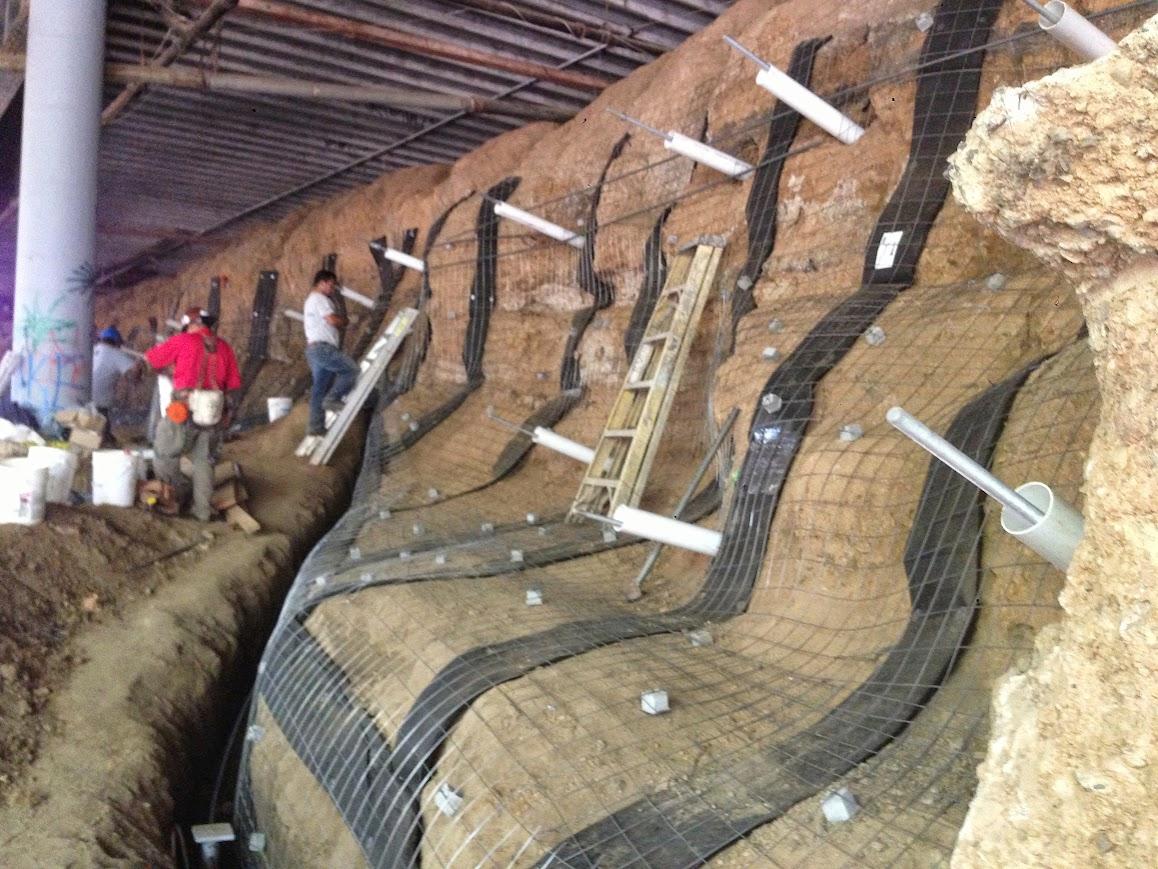Soil Nail Walls

Summary
- RWR Construction specializes in soil nail walls with shotcrete facing, offering 25+ years of experience.
- Soil nail systems reinforce slopes with steel bars and shotcrete for immediate structural support and long-term stability.
- Projects include slope stabilization, retaining walls, emergency landslide repair, and complex infrastructure applications.
- RWR provides complete project management: design consultation, precise installation, testing, and long-term support.
Expert Contractors for Soil Nail & Shotcrete Projects
RWR Construction has over 25 years of experience installing soil nail walls with shotcrete facing, delivering advanced earth retention solutions for residential, municipal, and emergency projects. Our expertise serves structural engineers, general contractors, property developers, and emergency response teams who require precision, rapid deployment, and compliance with stringent regulatory standards. We specialize in slope stabilization, high retaining walls, and irregular or challenging site conditions.
Understanding Soil Nail Walls with Shotcrete
Soil nail walls stabilize slopes or excavations using closely spaced steel reinforcement bars, which transfer loads from unstable soil into more stable ground. Shotcrete, a pneumatically applied concrete, creates a durable facing with immediate structural support. Combined, these components form a reinforced soil composite that accommodates complex geometries, provides erosion protection, and achieves long-term performance. Integrated drainage systems further ensure durability and reduce hydrostatic pressure behind the wall.
RWR’s Installation Process and Technical Expertise
RWR employs precise drilling equipment, professional shotcrete application methods, and rigorous quality control protocols. The installation process includes site preparation, soil nail placement with pressure grouting, drainage integration, shotcrete application, and final load testing. Each phase is closely monitored to meet design specifications, structural load requirements, and environmental standards. Our team also coordinates with engineers to optimize system performance and ensure long-term stability.
Project Applications and Advantages
Soil nail walls with shotcrete are ideal for high walls, irregular geometries, constrained spaces, and emergency stabilization. Compared with conventional retaining walls, these systems are cost-effective, faster to install, and adaptable to complex site conditions. Properly designed walls offer high load capacity, seismic resistance, minimal excavation requirements, and a 50–100-year service life. RWR’s capabilities extend to coastal bluffs, highway cuts, residential hillsides, and emergency landslide repairs, with comprehensive monitoring and maintenance support.
Comprehensive Project Support
RWR provides full-service project management, including constructability review, cost optimization, equipment selection, installation supervision, and post-installation monitoring. Clients receive detailed documentation, training for long-term monitoring, warranty coverage, and emergency response services. By integrating soil nail and shotcrete systems under a single management team, RWR ensures seamless coordination, technical precision, and reliable performance for even the most complex earth retention projects.
Frequently Asked Questions (FAQs)
How do soil nail walls compare to conventional retaining walls?
They typically cost 30-50% less while providing equal or superior performance, especially for walls over 20 feet high.
What is the typical lifespan of a soil nail wall with shotcrete facing?
Properly designed and installed systems last 50–100 years, depending on environmental conditions and corrosion protection.
Which soil types are suitable for soil nail walls?
Cohesive soils (clay, silt) and dense granular soils (sand, gravel) work best; loose soils may require ground improvement.
How long does installation take?
Most projects take 2–6 weeks from start to finish, including testing, grouting, and shotcrete application.
What testing is required?
All soil nails undergo proof testing to 133% of design load, with selected nails tested to 200% to ensure performance verification.